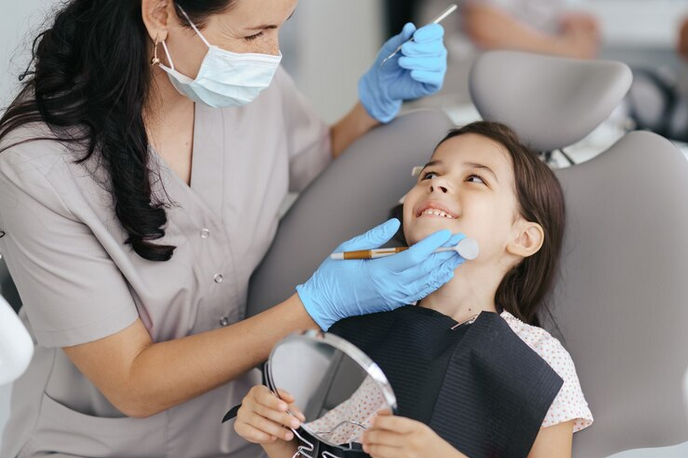Introduction:
The dental health of children is of paramount importance as it not only affects their physical well-being but also plays a significant role in their overall development. A positive dental experience during childhood is crucial in shaping their attitude towards oral health and dental care throughout their lives. This is where the role of a pediatric dentist comes into play. A pediatric dentist specializes in providing dental care to children, ensuring their oral health needs are met in a safe, comfortable, and child-friendly environment. In this article, we will explore the importance of pediatric dentistry, the unique skills and training required to become a pediatric dentist, and the strategies employed to create a positive dental experience for kids.
Importance of Pediatric Dentistry:
Pediatric dentistry is a vital branch of dental care that focuses on the oral health needs of infants, children, and adolescents. It recognizes the unique dental and behavioral characteristics of children and provides specialized care to address their specific needs. Early childhood dental experiences can have a lasting impact on a child's attitude towards oral health, and a positive experience can set the foundation for a lifetime of good dental habits. Pediatric dentists play a crucial role in promoting oral hygiene, preventing dental problems, diagnosing and treating dental conditions, and educating both children and parents about the importance of oral health.
Skills and Training of a Pediatric Dentist:
Becoming a pediatric dentist requires a unique set of skills and specialized training. After completing a four-year dental school program, aspiring pediatric dentists must undergo an additional two to three years of residency training focused on pediatric dentistry. During this residency program, they acquire in-depth knowledge and hands-on experience in dealing with the dental needs of children, including those with special healthcare requirements.
Pediatric dentists develop expertise in behavior management techniques that allow them to effectively communicate and build trust with their young patients. They learn how to create a child-friendly environment that reduces anxiety and fear related to dental visits. Moreover, pediatric dentists are trained to address the specific dental issues that commonly affect children, such as tooth decay, gum diseases, and developmental problems. They also specialize in treating dental emergencies and providing oral care for children with unique medical conditions.
Creating a Positive Dental Experience:
Pediatric dentists employ various strategies to create a positive dental experience for kids, ensuring their comfort and minimizing any potential anxieties. Some of the key approaches include:
- Child-Friendly Environment: Pediatric dental clinics are designed to be welcoming and child-friendly, with vibrant colors, playful decor, and a comfortable waiting area equipped with toys and books. This environment helps to alleviate anxiety and make children feel at ease.
- Communication and Education: Pediatric dentists communicate with children in a language they can understand, using non-threatening and age-appropriate explanations. They take the time to educate children about proper oral hygiene practices, encouraging them to take an active role in their dental care.
- Behavior Management Techniques: Pediatric dentists employ a range of behavior management techniques to help children feel comfortable during dental procedures. These techniques may include positive reinforcement, distraction techniques, and the use of tell-show-do methods to familiarize children with the treatment process.
- Pain and Anxiety Management: Pediatric dentists are skilled in providing pain management techniques, such as local anesthesia, to ensure a comfortable and pain-free experience for children. They also utilize nitrous oxide (laughing gas) or conscious sedation when necessary, always prioritizing the safety and well-being of the child.
- Parental Involvement: Pediatric dentists actively involve parents in their child's dental care. They provide guidance on oral hygiene practices at home, discuss dietary habits that promote dental health, and address any concerns or questions parents may have.
Conclusion:
Pediatric dentists play a crucial role in promoting the oral health of children and creating positive dental experiences. By specializing in the dental needs of children, they provide comprehensive care in a child-friendly environment. Through effective communication, education, and behavior management techniques, pediatric dentists ensure that children feel comfortable and develop a positive attitude towards dental visits. The impact of a positive dental experience during childhood extends beyond oral health; it instills good dental habits and contributes to the overall well-being of the child. Therefore, the services provided by pediatric dentists are invaluable in shaping the dental health of the younger generation and setting them on a path towards a lifetime of healthy smiles.





Comments